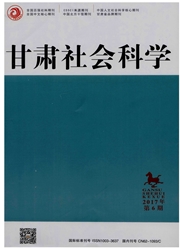

 中文摘要:
中文摘要:
本文基于双重代理视角分析了地方政府治理水平和控制权结构影响家族企业投资行为的机理。以2002—2008年间我国家族上市公司为研究样本,实证检验发现,超额控制程度较高的家族企业,其内部人有动机为实现其私人收益,忽略资本市场股票价格所提供的投资机会信号,偏离最优投资决策,降低公司投资股价之间敏感度。而较高的地方政府治理水平一方面通过约束内部人的机会主义行为,另一方面使企业拥有更多的外部融资便利,减少与政府的协调成本,提高市场配置资源的能力,从而提高投资股价敏感度。进一步研究发现,家族超额控制降低投资一股价敏感度的动机在地方政府治理水平较差的家族企业中更为显著,并且会降低投资对公司业绩的贡献程度。该研究发现不仅有助于我们从理论层面更好地理解镶嵌于政府层面代理问题的中国家族企业的投资行为,而且对于提高地方政府在维持证券市场的公共治理水平,进而推动我国家族企业健康发展有着重要的政策意义。
 英文摘要:
英文摘要:
This paper examines the influence of local government governance and control structure over the in- vestment of family firm based on a double - agent perspective. Taking the listed family firms in China in the years of 2002 -2008 for the study sample, the empirical test found that family excess control via private control benefits changes the incentives of insider in family firm to reduce their propensity to listen to the market. We further find there is a strong positive association between local government governance and investment - q sensi- tivity, suggesting the local government encourage accurate share prices, reduce government intervention, access to external finance, and efficient investment. Furthermore, the negative impact of family excess control on in- vestment - q sensitivity is primarily driven by sub - optimal investments. Overall, we provide the evidence that double - agent problem is an important factor that determines the learning from the stock market in capital allo- cation.
 同期刊论文项目
同期刊论文项目
 同项目期刊论文
同项目期刊论文
 期刊信息
期刊信息
